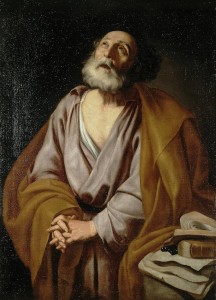
Painting of the Repentance of St. Peter
Image: State Museum Fund
(Franciscan Media) Following the ‘lost weekend’ of pain, doubt and self-torment, Peter hears the Good News: The Angel said to Mary, “Do not be afraid, for I know that you seek Jesus who was crucified. He is not here, for He has risen…Come see the place where He lay. Then go quickly and tell His disciples that He has risen from the dead and behold, He is going before you to Galilee, there you will see Him.” —Matthew 28:5-7
John relates, that when Peter ran to the tomb, “Peter reached the tomb first and stooping to look in, he saw the linen clothes lying there but he didn’t go in.” —John 20:4-5
“Then Simon Peter came, following him and went into the tomb, he saw the linen clothes lying and the napkin which had been on His head, not lying with the linen cloths but rolled up in place by itself. Then the other disciples that reached the tomb first also went in and he saw and believed.” —John 20:6-8 adding a reminder, “For as they did not know the scripture that He must rise from the dead, then the disciples went back to their homes.” —John 20:9-10
There the slowing, exploding impossible idea became reality, “On the evening of that day, the first day of the week, the doors being shut where the disciples were for fear of the Jews, Jesus came and stood among them and said to them, ‘Peace be with you.’ When He said this, he showed them his hands and his side. Then the disciples were glad when they saw the Lord.” —John 20:19-20
The Pentecost event completed, Peter’s experience of the Risen Jesus Christ, “They were all filled with the Holy Spirit and began to speak (express themselves) on other tongues (foreign languages) as the Spirit gave them utterance.” —Acts 2:4
Only then can Peter fulfill the task that Jesus had given him, “…I have prayed for you that your faith may not fail and when you have turned again, strengthen your brethren.” —Luke 22:32
Peter at once became the spokesman for the twelve about their experience of the Holy Spirit, before the civil authorities, who wished to quash their ministry, before the council of Jerusalem for the community–Peter was first to preach the ‘Good News’ to the Gentiles. The healing power of Jesus in him is well attested with the healing of the paralyzed Aeneas raising Joppa (Tabitha) from the dead. —Acts 9:32-43
Even a Saint experiences difficulties in Christian living. When Peter stopped eating with Gentile Christians because he did not want to wound the sensibilities of Jewish converts to Christ, Paul said: “I opposed him to his face because he stood condemned.” —Galatians 2:11 They were not on the correct road in line with the truth of the gospel:
For before certain men came from James he ate with the Gentiles but when they came he drew back and separated himself fearing the circumcision party and with him, the rest of the Jews acted insincerely, so that even Barnabas was carried away by their insincerity but when I saw that they were not straightforward about the truth of the Gospel…” —Galatians 2:12-14a
Today’s Feast commemorates the seven years during which Pope Peter whom Jesus Christ had selected to sit in His place as the servant-authority of the whole Church: “I tell you, you are Peter and on this rock I will build my Church and the powers of death shall not prevail against it. I will give you the keys of the Kingdom of Heaven and whatever you bind on earth shall be bound in Heaven and whatever you loose on earth shall be loosed in Heaven.” —Matthew 16:18-19
From “Antioch before Peter went to Rome”, writes Joy Filled Family, “Peter left Jerusalem and founded the See of Antioch among the Gentiles–In that large Eastern City, Christianity took deep root and it was there, that the faithful were first called by the name of Christians. After seven years, the ‘Vicar of Christ’ transferred his See to Rome, the very center of the ancient world, so that from it, the messengers of Salvation might radiate to the uttermost ends of the world.”
Saint Pope Peter, the ‘Vicar of Christ’ triumphed over Satan who had pursued him to Rome writes EWTN in the person of Simon Magus. He who had formally trembled at the voice of a poor maid, now feared not the very throne of idolatry and superstition. The Capital of the empire of the world and the center of impiety, called for zeal of the prince of the apostles.
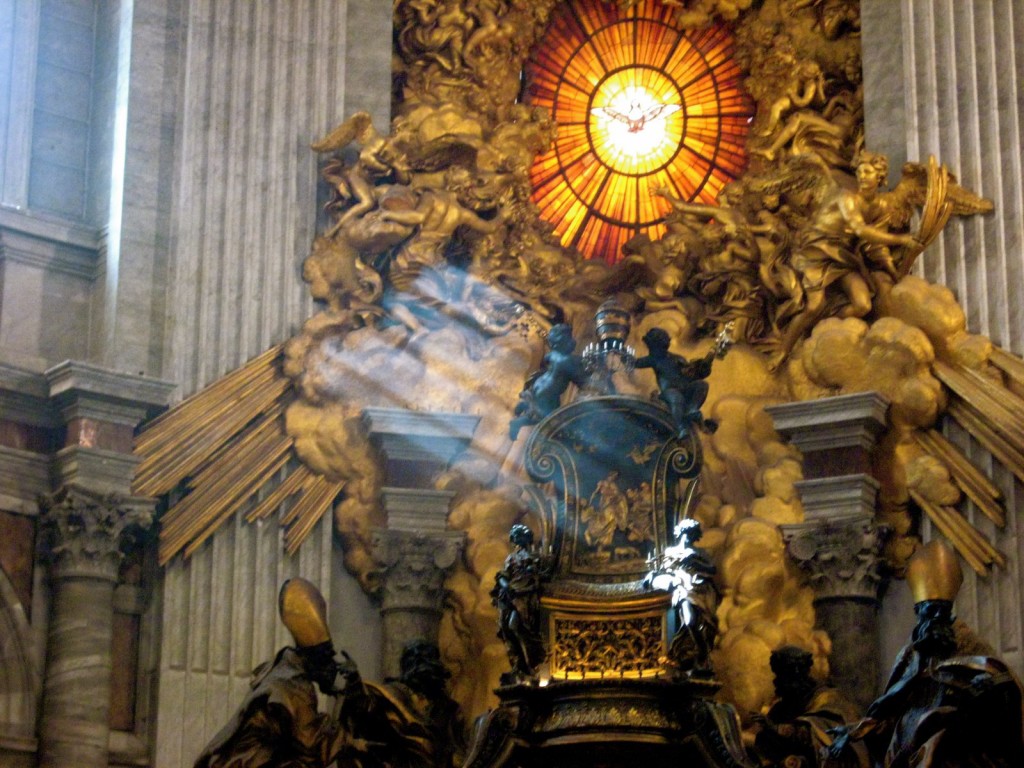 The Chair of Pope Saint Peter —Vatican.com
The Chair of Pope Saint Peter —Vatican.com
St. Peter took the providence and ministered the Gospel of Faith through Jesus Christ, establishing his ‘Episcopal Chair’ which Pope Benedict XVI addressed on this date in 2006 and whose successors the ‘Bishop’s of Rome’ will be entrusted for in all ages.
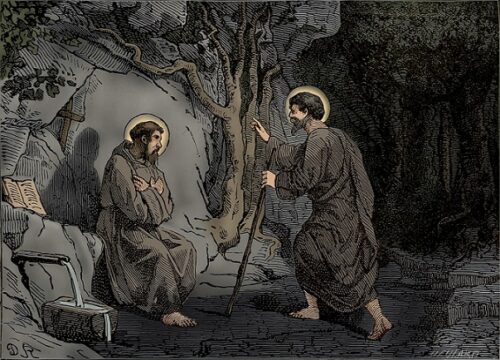
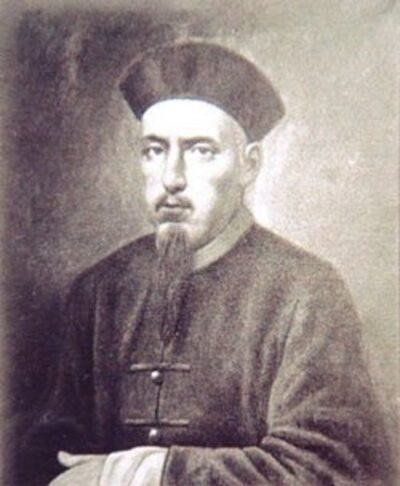
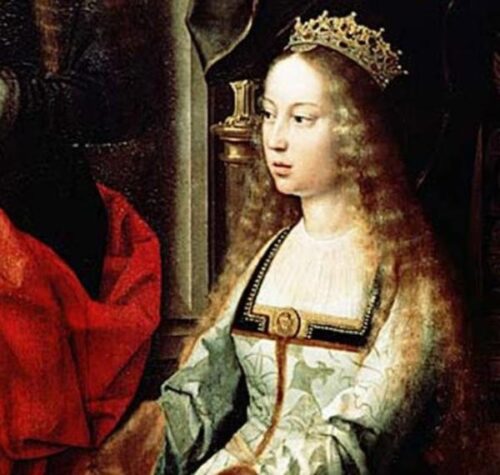
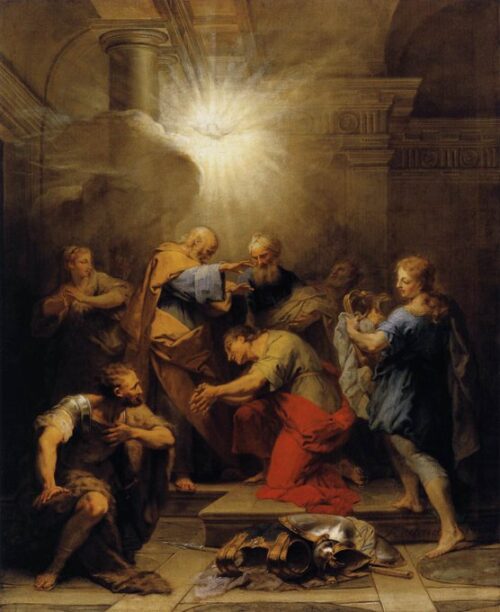
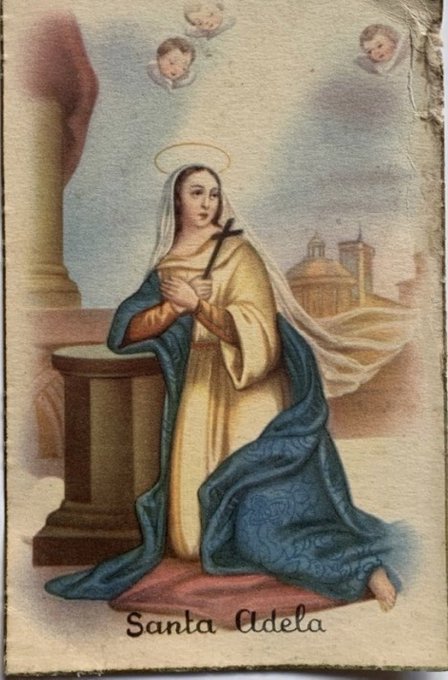
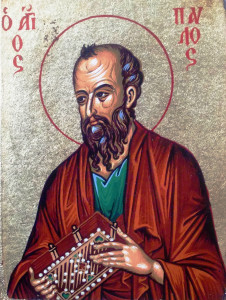
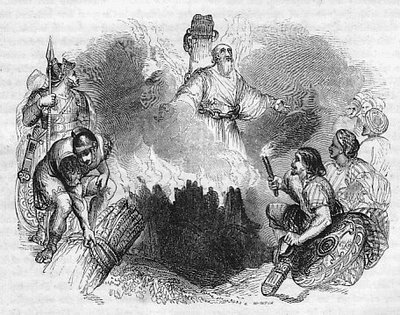 Miracle: St. Polycarp in the Flames
Miracle: St. Polycarp in the Flames
 The Chair of Pope Saint Peter —
The Chair of Pope Saint Peter —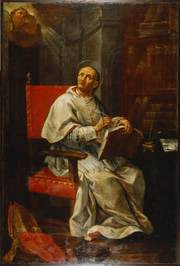
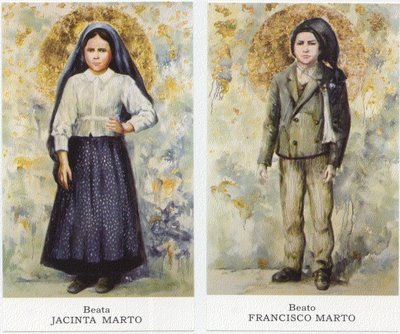 St. Jacinta (1910-1920) St. Francisco Marto (1908-1919)
St. Jacinta (1910-1920) St. Francisco Marto (1908-1919)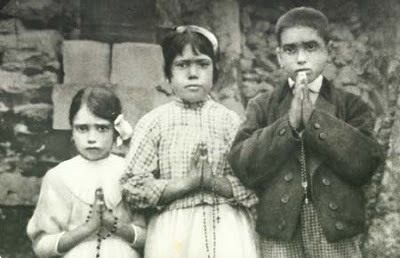 Jacinta Marto, Lucia de Jesus dos Santos & Francisco Marto
Jacinta Marto, Lucia de Jesus dos Santos & Francisco Marto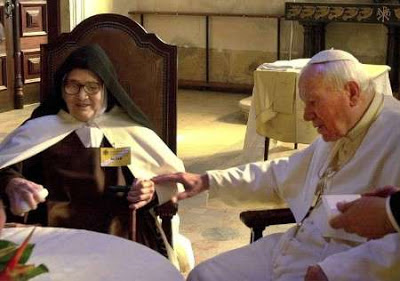 Sister Lucia and Pope Saint John Paul II –Courtesy of: Unam Sanctam
Sister Lucia and Pope Saint John Paul II –Courtesy of: Unam Sanctam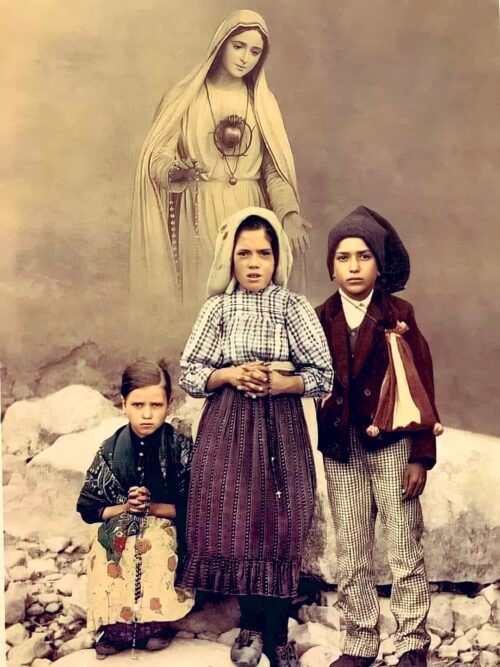 The Fatima Children, St. Jacinta Marto, Sister Lucia dos Santos
The Fatima Children, St. Jacinta Marto, Sister Lucia dos Santos